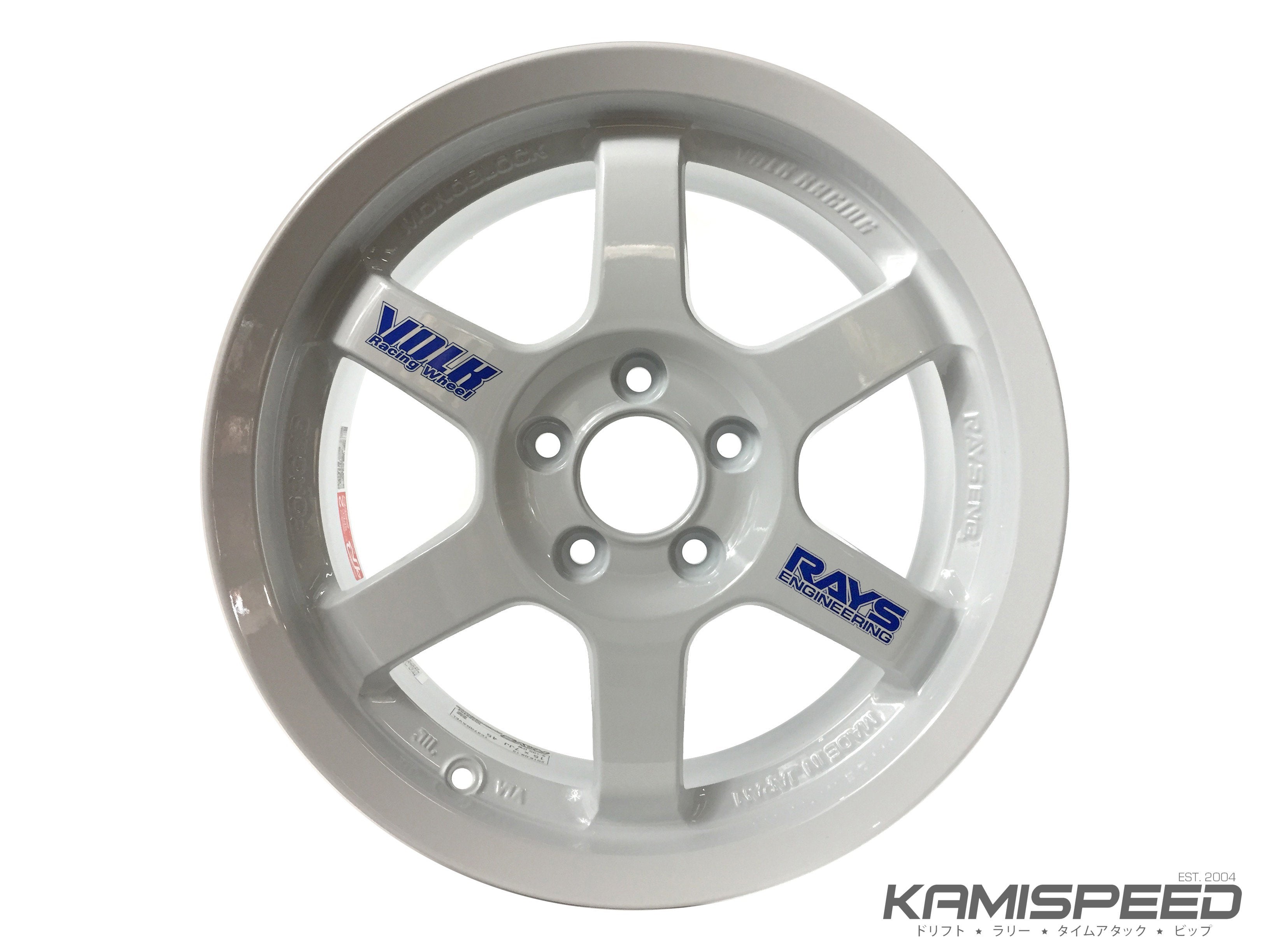The Volk Racing TE37 by Rays Engineering is the most recognizable wheel in the world. This is just a blanket statement but we dare anyone to challenge it and prove us wrong.
Established in 1973, Rays slowly grew among the Japanese wheels ranks through the development of cast modular and later monoblock racing wheels (forged wheels didn't become a thing until 1977 when Weds introduced the Racing FORG but we'll get into that some other time). The 70's/80's was a time dominated by brands and wheels from Hayashi Racing, Watanabe, and Speed Star Racing (SSR). Despite the competition, Rays Engineering was able to carve a niche focusing on quality, strength, and weight savings. Along they way they had plenty of success, most notably being the wheel supplier for the 1991 Mazda 787 that won that years' 24 Hours of Le Mans.


Fast forward a few years, the Japanese consumer market saw a surge of demand for performance products for everyday cars. Remember this was a time when the EG Civic was rising in popularity and wasn't viewed as purely a family car. In order to meet market trends, Rays Engineering began working on a forged monoblock street wheel to bridge performance requirements from their racing experience. Taking weight, strength, and practicality into consideration, they needed to achieve a perfect balance (Rays could just release a Magnesium forged wheel but thats not exactly cheap).
The result was the introduction of the first ever TE37 in 1996, which stands for "Touring Evolution" and their benchmark of 3.7 kilograms in the 15x6 size. According to Rays, the secret of this wheel comes from the six 60 degree (equilateral) triangle windows that efficiently disperse weight. The wheel came in white and the now iconic Volk Racing Bronze: a special anodized finish that is lighter than paint, but still durable enough for street use. This was a wheel marketed as a track wheel that you could then use on the street for your daily commute.
[Side bar: 1996 was also the year that Spoon Sports introduced the SW388: Spoon Wheel 3.88 kilograms for their 15x6.5 benchmark]


The Volk Racing TE37 was instantly a success. Race teams used race variants on the Touring Championships during the 90's and consumers could own the same design on the street. Size offerings expanded throughout the years to meet new vehicle demands but the design came to an end in 2018. Even so, it's clear to see the success, having a design that was largely unchanged for 22 years. Though we are now talking in historical terms, the TE37 had such a large impact in the industry that it has sprouted numerous iterations for Rays, and many other companies have built their brands from the covert and/or shameless replication of the design. Hate it or love it the Volk Racing TE37 by Rays Engineering completely changed the sport compact industry.
Stay tuned next edition to explore the many iterations of the TE37!

